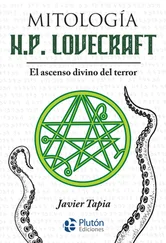“Taking that money to the bank?” Milton asked, seeing his father empty the cash register.
“Yes, to the bank.” And Lefty did go to the bank. He went to withdraw money from his savings account, in order to continue his steady assault on all nine hundred and ninety-nine possible permutations of a three-digit variable. Whenever he lost, he felt awful. He wanted to stop. He wanted to go home and confess to Desdemona. The only antidote to this feeling, however, was the prospect of winning the next day. It’s possible that a hint of self-destructiveness played a part in my grandfather’s numbers-playing. Full of survivor’s guilt, he was surrendering himself to the random forces of the universe, trying to punish himself for still being alive. But, mostly, gambling just filled his empty days.
I alone, from the private box of my primordial egg, saw what was going on. Milton was too busy running the diner to notice. Tessie was too busy taking care of Chapter Eleven to notice. Sourmelina might have noticed something, but she didn’t make many appearances at our house during those years. In 1953, at a Theosophical Society meeting, Aunt Lina had met a woman named Mrs. Evelyn Watson. Mrs. Watson had been attracted to the Theosophical Society by the hope of contacting her deceased husband, but soon lost interest in communicating with the spirit world in favor of whispering with Sourmelina in the flesh. With shocking speed, Aunt Lina had quit her job at the florist’s shop and moved down to the Southwest with Mrs. Watson. Every Christmas since, she sent my parents a gift box containing hot sauce, a flowering cactus, and a photograph of Mrs. Watson and herself in front of some national monument. (One surviving photo shows the couple in an Anasazi ceremonial cave at Bandelier, Mrs. Watson looking as wisely lined as Georgia O’Keeffe while Lina, in a tremendous sunhat, descends a ladder into a kiva.)
As for Desdemona, during the mid-to-late fifties she was experiencing a brief and completely uncharacteristic spell of contentment. Her son had returned unhurt from another war. (St. Christopher had kept his word during the “police action” in Korea and Milton hadn’t been so much as fired on.) Her daughter-in-law’s pregnancy had caused the usual anxiety, of course, but Chapter Eleven had been born healthy. The restaurant was doing well. Every week family and friends gathered at Milton’s new house in Indian Village for Sunday dinner. One day Desdemona received a brochure from the New Smyrna Beach Chamber of Commerce, which she had sent away for. It didn’t look like Smyrna at all, but at least it was sunny, and there were fruit stands.
Meanwhile, my grandfather was feeling lucky. Having played at least one number every day for a little over two years, he had now bet on every number from 1 to 740. Only 159 numbers to go to reach 999! Then what? What else?—start over. Bank tellers handed rolls of money to Lefty, which he in turn handed to the pharmacist behind the window. He played 741, 742, and 743. He played 744, 745, and 746. And then one morning the bank teller informed Lefty that there weren’t sufficient funds in his account to make a withdrawal. The teller showed him his balance: $13.26. My grandfather thanked the teller. He crossed the bank lobby, adjusting his tie. He felt suddenly dizzy. The gambling fever he’d had for twenty-six months broke, sending a last wave of heat over his skin, and suddenly his entire body was dripping wet. Mopping his brow, Lefty walked out of the bank into his penniless old age.
The earsplitting cry my grandmother let out when she learned of the disaster cannot be done justice in print. The shriek went on and on, as she tore her hair and rent her garments and collapsed onto the floor. “HOW WILL WE EAT!” Desdemona wailed, staggering around the kitchen. “WHERE WILL WE LIVE!” She spread her arms, appealing to God, then beat on her chest, and finally took hold of her left sleeve and ripped it off. “WHAT KIND OF HUSBAND ARE YOU TO DO THIS TO YOUR WIFE WHO COOKED AND CLEANED FOR YOU AND GAVE YOU CHILDREN AND NEVER COMPLAINED!” Now she tore off her right sleeve. “DIDN’T I TELL YOU NOT TO GAMBLE? DIDN’T I?” She started on her dress proper now. She took the hem in her hands, as ancient Near Eastern ululations issued from her throat. “OULOULOULOULOULOULOU! OULOULOULOULOULOULOU!” My grandfather watched in astonishment as his modest wife shredded her clothing before his eyes, the skirt of the dress, the waist, the bosom, the neckline. With a final rip, the dress split in two and Desdemona lay on the linoleum, exposing to the world the misery of her underwear, her overburdened underwire brassiere, her gloomy underpants, and the frantic girdle whose stays she was even now popping as she approached the summit of her dishevelment. But at last she stopped. Before she was completely naked, Desdemona fell back as though depleted. She pulled off her hairnet and her hair spilled out to cover her and she closed her eyes, spent. In the next moment, she said in a practical tone, “Now we have to move in with Milton.”
Three weeks later, in October 1958, my grandparents moved out of Hurlbut, one year before they would have paid off the mortgage. Over a warm Indian summer weekend, my father and dishonored grandfather carried furniture outside for the yard sale, the sea-foam-green sofa and armchairs, which still looked brand-new beneath plastic slipcovers, the kitchen table, the bookcases. Lamps were set out on the grass along with Milton’s old Boy Scout manuals, Zoë’s dolls and tap shoes, a framed photograph of Patriarch Athenagoras, and a closetful of Lefty’s suits, which my grandmother forced him to sell as punishment. Hair safely restored beneath her hairnet, Desdemona glowered around the yard, submerged in a despair too deep for tears. She examined each object, sighing audibly before affixing a price tag, and scolded her husband for trying to carry things too heavy for him. “Do you think you’re young? Let Milton do it. You’re an old man.” Under one arm she held the silkworm box, which wasn’t for sale. When she saw the portrait of the Patriarch, she gasped in horror. “We don’t have bad luck enough you want to sell the Patriarch?”
She snatched it up and carried it inside. For the rest of the day she remained in the kitchen, unable to watch the miscellaneous horde of yard sale scavengers pick over her personal possessions. There were weekend antiquers from the suburbs who brought their dogs along, and families down on their luck who roped chairs to the roofs of battered cars, and discriminating male couples who turned everything over to search for trademarks on the bottom. Desdemona would have felt no more ashamed had she herself been for sale, displayed naked on the green sofa, a price tag hanging from her foot. When everything had been sold or given away, Milton drove my grandparents’ remaining belongings in a rented truck the twelve blocks to Seminole.
In order to give them privacy, my grandparents were offered the attic. Risking injury, my father and Jimmy Papanikolas carried everything up the secret stairway behind the wallpapered door. Up into the peaked space they carted my grandparents’ disassembled bed, the leather ottoman, the brass coffee table, and Lefty’s rebetika records. Trying to make up with his wife, my grandfather brought home the first of the many parakeets my grandparents would have over the years, and gradually, living on top of us all, Desdemona and Lefty made their next-to-last home together. For the next nine years, Desdemona complained of the cramped quarters and of the pain in her legs when she descended the stairs; but every time my father offered to move her downstairs, she refused. In my opinion, she enjoyed the attic because the vertigo of living up there reminded her of Mount Olympus. The dormer window provided a good view (not of sultans’ tombs but of the Edison factory), and when she left the window open, the wind blew through as it used to do in Bithynios. Up in the attic, Desdemona and Lefty came back to where they started.
Читать дальше
Конец ознакомительного отрывка
Купить книгу












